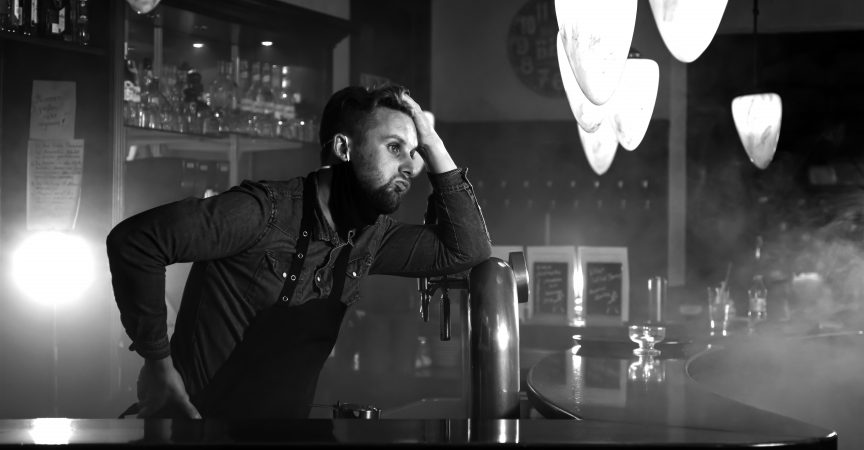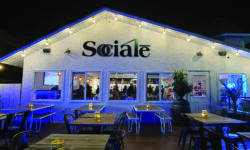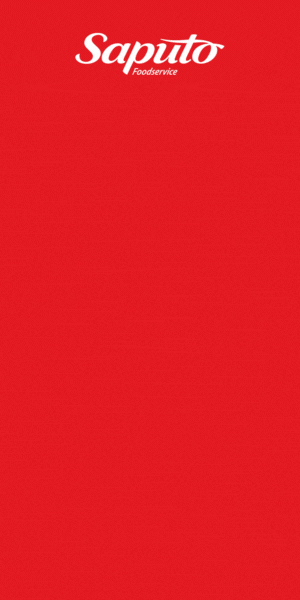From the Ashes of a Pandemic… Opportunity for a Mental Health Revolution
Most who have worked in the hospitality industry will attest to its unique, compelling and, at times, utterly engrossing culture. In many ways, it’s not that different from working in theatre. Whether you work in fine dining or quick service, each shift is a performance, with a curated set, lines, cues from colleagues and high expectations from patrons. When the door closes behind the last guest, the players relax and share their stories and successes.
There is enormous—and too often unacknowledged—pressure on each team member to live up to the promise of delivering an unforgettable experience; to suspend their emotions and vulnerabilities for the sake of the ‘show’. This routine is both a stimulant and a crutch, and, while there’s always been talk about mental health and substance abuse in the industry, the preservation of the ‘glamour’ has often been prioritized over the thoughtful examination of foodservice culture and the strong business reasons to invest in healthier work environments.
While there’s no minimizing the economic chaos caused by COVID-19, the upheaval brings an opportunity for real change and evolution. The pandemic has thrown accelerant on a work culture fire that’s been smouldering for decades, illuminating fractures and gaps in the system for all to see. While mental health and wellness is by no means a new conversation, it’s finally moving to the front of the line.
Hassel Aviles, Executive Director of the non-profit Not 9 to 5 organization, is cautiously optimistic. “It’s a strange positive that the pandemic has actually surfaced some of the mental health issues that have always affected hospitality employees. The conversation has become more intense, but it is not new. What is new is an awareness and demand to reimagine and rebuild the industry in a different way. There’s a lot of intolerance for things that were previously accepted as the norm.”
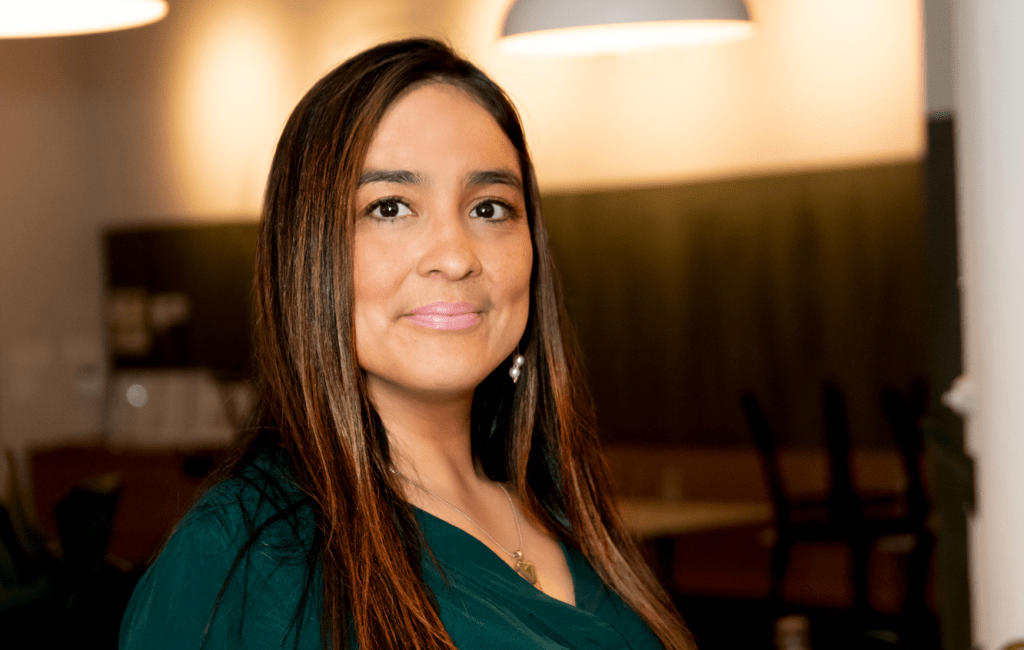
The business case for committing to a resilient, sustainable workplace culture that prioritizes all aspects of employee wellbeing is worth examining. In 2019, the Deloitte Canada Insights report, The ROI in workplace mental health programs: Good for people, good for business, found that investing in employee mental health and wellness accelerated profitability, delivering a median annual ROI more than double for every dollar spent by companies with significant mental health programs in place after three years.
To underscore the power and the promise of the business case derived from the findings of its report, in November 2019 Deloitte Canada increased its own annual employee mental health benefits from $300 to $4,000 per person.
While the hospitality sector continues to struggle under unprecedented pressure, Aviles counsels a bias to immediate action, encouraging operators
and leaders to start prioritizing employee mental health and well-being right now, whether their business is open or temporarily closed. “Increased isolation is very dangerous and is now being enforced. Social distancing should be renamed ‘physical distancing’ because we need social connections now more than ever—it’s a fundamental part of feeling human and mentally well.
Businesses are closing routinely now, deepening a shared sense of collective community grief. That has an impact on everyone. Strong leaders acknowledge what’s happening in conversation, in the media, and on social media because it validates what people are feeling. That said, we need to make sure we’re still offering hope. There are incredible opportunities that will come out of this.”
Even as the industry continues to respond and evolve on a near-daily
basis, Aviles encourages the adoption of high-impact leadership actions that can and should be taken now and that she believes can help businesses embrace the new opportunities to come:
- Acknowledge and promote mental health for everyone, across all aspects and seniority levels across the business. The same care
should be provided for mental health conditions as is available for
physical injuries in the workplace. - Understand, create and foster psychological safety. We have been inundated with resources for physical safety protocols – PPE,
distancing, etc., but there’s been little mention of what is needed for psychological safety. Amy C. Edmondson created the term
‘psychological safety’, defined as an environment where,“team members feel safe to take risks and be vulnerable in front of each other. This is the is standard we all need to reach. - Demonstrate engagement. Be approachable, present and focused in conversations with staff and colleagues, whether or not the team is currently working. Practice active listening to understand, not only
to respond.” - Be a role model. Leaders and employees should share examples of how they promote and protect their own mental health. Sharing
personal perspectives on your own work, successes, and failures
is crucial. - Be approachable. As a leader or employee, you need to be available
to people and build rapport; make time and space for others to
approach – often owners/operators are so busy they are not available
to employees. - Make mistakes and risk-taking okay. Encourage and celebrate
mistakes and new ideas as learning innovation opportunities to
increase engagement and productivity. - Involve your team. Operations often revolve around chefs or owners, but helping people contribute and provide input/opinions is important. Listen to new ideas, consider alternative perspectives
and options, then take the ones that hold value. - Create new reward systems. If you have a great service and you
celebrate with alcohol or substances, then you have a disappointing
service and you heal with alcohol or substances, you may feel it’s
just part of the culture, but you’re creating a pattern that associates
substances with workplace highs and lows. Humans are habit-based.
It’s important to mix up the environments and activities for
celebrations or community, taking care not to institutionalize
patterns that may cause harm.
Leaders need to consider their obligation to support mental health and wellness; not only because it’s the ‘right’ thing to do, but because its crucial to business success. Aviles also believes that leaders need to be active participants in building healthy workplaces, starting with eliminating competition and nurturing collaboration.
“This is all new to us – it’s everyone’s first pandemic. The shift in the times and the industry demand of all of us are new to us. The industry has not been following these principles. We’re all figuring it out and right-sizing it for our own environments. My hope is that people will take the tools and make them their own. Be gentle and kind to yourself along the way, but don’t give up on the potential of a reimagined business. It’s not about doing it right, it’s about getting right.”
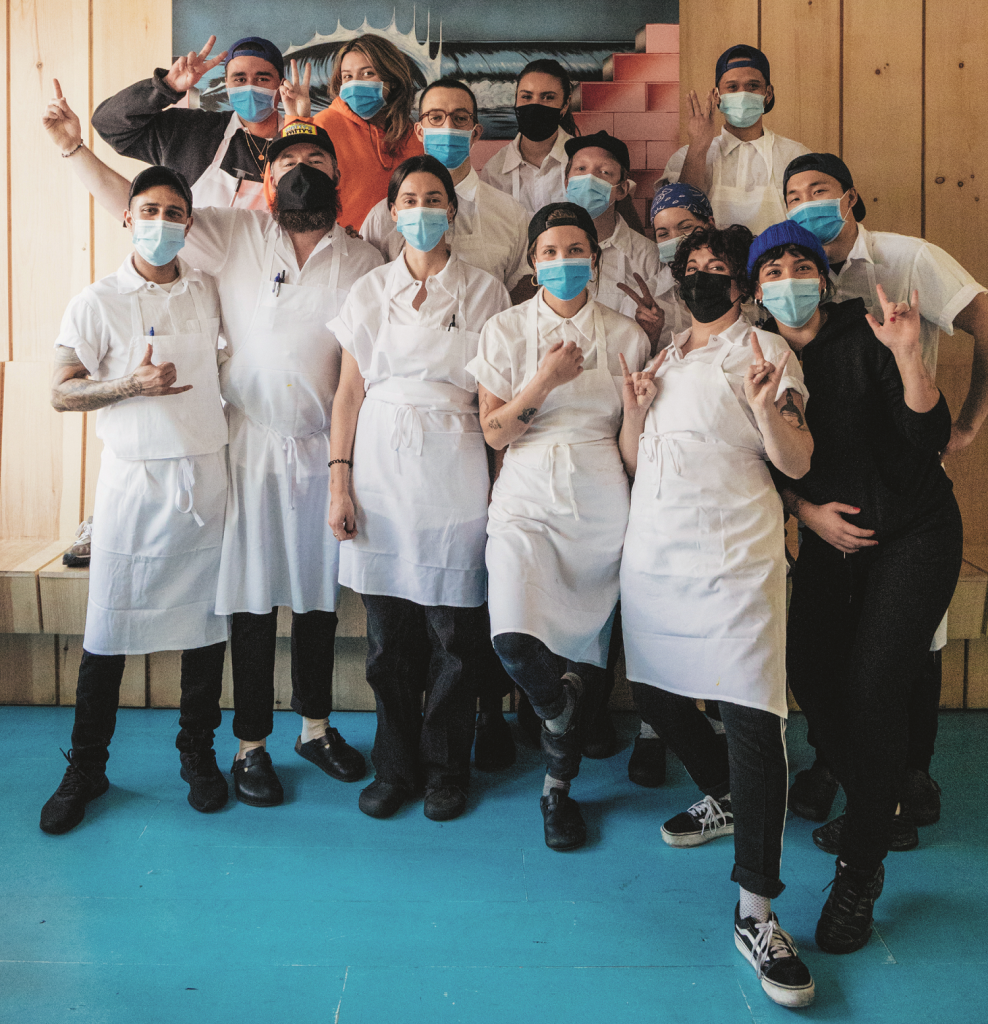
Mental Health & Community Over Cheeseburgers at Matty’s Patty’s Burger Club
Chef Coulson Armstrong found his way into the kitchen after falling in love with food on a trip to Europe. The plan had been to go to business school, but instead, he found himself at Oliver & Bonacini, working his way up under John Horner to head chef at Canoe, where he oversaw a team of 40.
He learned the business through the crush of the Summerlicious and Winterlicious programs, which took a toll on his mental health it took a while to recognize and unpack. “I took some time off to travel to Nepal, India, Vietnam and Thailand, spending a month in each place. I needed to disconnect. I’d spent so much time immersed in the business it took me six months to decompress. I ended up in Australia and worked in about 10 different restaurants. I just wanted to cook, and it made me feel really alive again. After moving to New Zealand, all of a sudden, I went from feeling nothing to feeling a lot. I was depressed for the first time and that was tough to admit. I realized I needed to work on myself, so I started yoga and swimming. I started working on changing the culture of the restaurant, being happy at work and taking the time to sit down and eat together.”
Armstrong’s path led him to California, where he crossed paths and connected with Chef Matty Matheson and, when the pandemic arrived, their plans to open a fine dining restaurant were deferred. Armstrong and Matheson’s quick pivot and collaboration began Matty’s Patty’s Burger Club, a contactless burger pop-up across the street from Toronto’s Trinity Bellwoods Park.
From the beginning, the leadership team planned Matty’s Patty’s as an intentional, safe workplace. “Most of our team had been hand-picked to work in the fine dining venue, and when plans changed, everyone needed to work. We sat down and planned how to build our team and how to build the culture. We close every day between 3 and 4:00 to sit down and eat together. The staff has full benefits and we do daily mental health check-ins to make sure everyone is comfortable and getting what they need. There are things outside of our walls that affect people at work, so we’ve expanded to take on space for a staff room where we can be safe and decompress.”
The wellness mindset at Matty’s Patty’s does not end at the pick-up window. The team has participated in numerous charitable endeavors and regularly delivers their burgers to residents of the tent encampment across the street in Trinity Bellwoods Park. “We’ve opened in a community, and we need to get to know our neighbours. For now, our neighbours are a
homeless camp in Trinity Bellwoods Park. There’s mental health right across the street and we need to make sure we’re doing what we can as part of the community.”
Chef Coulson feels the culture at Matty’s Patty’s isn’t the end game for the partners. “It’s something we want to grow—it’s the stepping stone toward building an enduring cultural foundation. When we move into fine dining, we will refine our model as the stakes are a little higher. Look, I never thought I’d be running a cheeseburger smashing joint, but change is always there and you work with it. We’re all locked together in this little community and I’ve learned a lot in the past months. More than I could ever imagine. People are feeling more than ever — it’s our job to hear everyone’s voice.”
To learn more about Not 9 to 5 and mental wellness in the foodservice industry, take advantage of RC Show 2021 On Demand!
Until March 31st, get unlimited access to ideas, insights, and inspiration from 150+ industry experts and 60+ hours of world-class programming from RC Show 2021, including the Mental Health: Increasing Awareness & Supporting Tools panel featuring Hassel Aviles of Not 9 to 5.



